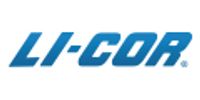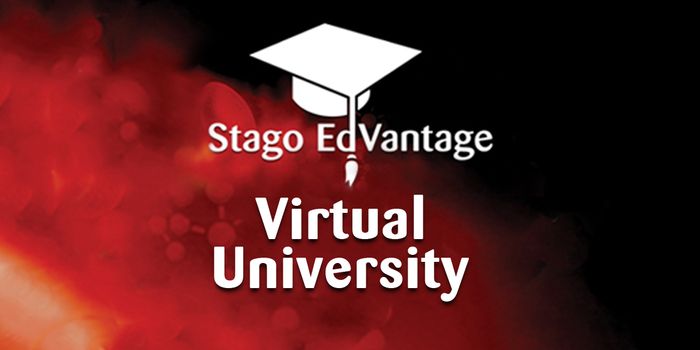Bio-Techne empowers researchers in Life Sciences and Clinical Diagnostics by providing high-quality reagents, instruments, custom manufacturing, and testing services. Our family of brands creates a unique portfolio of products and services. Science is our passion; it drives us ...
See more-
Astrea Bioseparations
Astrea Bioseparations Ltd (formerly Prometic Bioseparations Ltd) has long been established as an expert in affinity chromatography and bioseparations. Providing services for ligand design, adsorbent development, large scale adsorbent manufacture (up to 1,000L batch sizes) to GMP ...
See more -
LI-COR Biosciences
LI-COR first introduced scientific instruments for plant science research and quickly grew to provide scientists tools for such diverse disciplines as atmospheric research and the study of how proteins interact at the cellular level. LI-COR Biosciences is a global leader in the ...
See more -
Advanced Instruments
Advanced Instruments, Inc., is headquartered in Norwood, Massachusetts. Founded in 1955, the company is the world's foremost authority for the application of Freezing Point Depression technology for measuring the osmolality of solutions. Since the company's inception ...
See more
BioProcessing Virtual Event Series 2019


Labroots is excited to present the 1st annual event in the BioProcessing Virtual Event Series. The event will remain open 6 months from the date of the live event. The webinars will be available for unlimited on-demand viewing.
Topic's for this years event included:
- Optimizing Cell Culture Technology
- Enhancing Knowledge for Growing Cells
- Culturing CHO Cells
- Improving Cultivation Results
- Next-Generation Processes
- Modeling to Support Cultivation
- Bioproduction: Scale, Bioreactors & Disposables
- Downstream Processing
- Next-Gen Manufacturing Strategies
- Modeling to Improve Processes
- Bioreactor Optimization
- Continuous Processing for Biopharmaceuticals
- Continuous Process Development – From Perfusion to Purification
- Analytical Development and Quality; Formulation and Stability
- Cell Therapy and Manufacturing
- Future of Cell Therapy Manufacturing
- Regulatory and Strategies for Cell-Based Therapies
- Product and Process Characterization for Release
Continuing Education
LabRoots is approved as a provider of continuing education programs in the clinical laboratory sciences by the ASCLS P.A.C.E. ® Program. By attending this event, you can earn 1 Continuing Education credit per presentation for a maximum of 14 credits.
Use #LRbioprocessing to follow the conversation!
Agenda Share
-
JAN 31, 2019 1:30 PM PST
Standardization of Cell Viability Assays in Primary Cells as a Prerequisite for Novel Bioprocessing Applications
Simon Kaja, PhD
Assistant Professor of Ophthalmology and Molecular Pharmacology & Therapeutics, Dr. John P. and Therese E. Mulcahy Endowed Professor in Ophthalmology, Loyola University ChicagoBIOGRAPHY -
JAN 31, 2019 12:00 PM PST
Development of Recombinant Transgenic Proteins to Probe Cellular Signaling Mechanisms in Preclinical Drug Target Discovery and Drug Development
Peter Koulen, PhD
Professor & Felix and Carmen Sabates Missouri Endowed Chair in Vision Research, Departments of Ophthalmology & Biomedical Sciences, University of Missouri - Kansas City, School of MedicineBIOGRAPHY -
JAN 31, 2019 12:00 PM PST
From Start to Finish, Bio-Techne Solutions for Bioprocessing
Christopher Heger, PhD
Senior Manager, Applications Science at ProteinSimple, a Bio-Techne BrandBIOGRAPHYSponsored By: ACD - A Bio-Techne Brand -
JAN 31, 2019 10:30 AM PST
Flow-Through Polishing and The Use of Multi-Mode Ligand Libraries to Improve Process Efficiencies
Buzz Lobbezoo
Product Support and Development Manager at Astrea Bioseparations Ltd.BIOGRAPHYSponsored By: Astrea Bioseparations -
JAN 31, 2019 10:30 AM PST
Overcoming Limitations of Conventional Tag Systems - Strep-Tactin® XT Applications
-
JAN 31, 2019 9:00 AM PST
Streamlining the Biologics Development Process: From Transient to Stable Production in the ExpiCHO System
Jon Zmuda, PhD
Director, Cell Biology, Life Sciences Solutions Group, Thermo Fisher ScientificBIOGRAPHY -
JAN 31, 2019 7:30 AM PST
Keynote Presentation: Extracellular Vesicle-Mediated mRNA-Based Gene Delivery for Targeted Treatment of HER2-Positive Breast Cancer in Mice by Prodrugs - A New Gene-Delivered Enzyme Prodrug
A.C. Matin, PhD
Professor of Microbiology & Immunology, Department of Microbiology & Immunology, Stanford University School of MedicineBIOGRAPHY -
- Optimizing Cell Culture Technology
-
-
JAN 31, 2019 7:30 AM PST
Keynote Presentation: Extracellular Vesicle-Mediated mRNA-Based Gene Delivery for Targeted Treatment of HER2-Positive Breast Cancer in Mice by Prodrugs - A New Gene-Delivered Enzyme Prodrug
A.C. Matin, PhD
Professor of Microbiology & Immunology, Department of Microbiology & Immunology, Stanford University School of MedicineBIOGRAPHY -
JAN 31, 2019 9:00 AM PST
Streamlining the Biologics Development Process: From Transient to Stable Production in the ExpiCHO System
Jon Zmuda, PhD
Director, Cell Biology, Life Sciences Solutions Group, Thermo Fisher ScientificBIOGRAPHY -
JAN 31, 2019 10:30 AM PST
Flow-Through Polishing and The Use of Multi-Mode Ligand Libraries to Improve Process Efficiencies
Buzz Lobbezoo
Product Support and Development Manager at Astrea Bioseparations Ltd.BIOGRAPHYSponsored By: Astrea Bioseparations -
JAN 31, 2019 1:30 PM PST
Standardization of Cell Viability Assays in Primary Cells as a Prerequisite for Novel Bioprocessing Applications
Simon Kaja, PhD
Assistant Professor of Ophthalmology and Molecular Pharmacology & Therapeutics, Dr. John P. and Therese E. Mulcahy Endowed Professor in Ophthalmology, Loyola University ChicagoBIOGRAPHY - Bioproduction: Scale, Bioreactors & Disposables
-
JAN 31, 2019 10:30 AM PST
Overcoming Limitations of Conventional Tag Systems - Strep-Tactin® XT Applications
- Cell Therapy and Manufacturing
-
JAN 31, 2019 12:00 PM PST
Development of Recombinant Transgenic Proteins to Probe Cellular Signaling Mechanisms in Preclinical Drug Target Discovery and Drug Development
Peter Koulen, PhD
Professor & Felix and Carmen Sabates Missouri Endowed Chair in Vision Research, Departments of Ophthalmology & Biomedical Sciences, University of Missouri - Kansas City, School of MedicineBIOGRAPHY - Continuous Processing for Biopharmaceuticals
-
JAN 31, 2019 12:00 PM PST
From Start to Finish, Bio-Techne Solutions for Bioprocessing
Christopher Heger, PhD
Senior Manager, Applications Science at ProteinSimple, a Bio-Techne BrandBIOGRAPHYSponsored By: ACD - A Bio-Techne Brand
Speakers Share
-
A.C. Matin, PhD
Professor of Microbiology & Immunology, Department of Microbiology & Immunology, Stanford University School of Medicine
BIOGRAPHY
-
Christopher Heger, PhD
Senior Manager, Applications Science at ProteinSimple, a Bio-Techne Brand
BIOGRAPHY
-
Simon Kaja, PhD
Assistant Professor of Ophthalmology and Molecular Pharmacology & Therapeutics, Dr. John P. and Therese E. Mulcahy Endowed Professor in Ophthalmology, Loyola University Chicago
BIOGRAPHY
-
Dennis Karthaus, MS
Scientist and Team Leader, Cell Cultivation, IBA Life Sciences
BIOGRAPHY
-
Weimin Lin, PhD
Principal Scientist, Ambrx
BIOGRAPHY
-
Buzz Lobbezoo
Product Support and Development Manager at Astrea Bioseparations Ltd.
BIOGRAPHY
-
Jon Zmuda, PhD
Director, Cell Biology, Life Sciences Solutions Group, Thermo Fisher Scientific
BIOGRAPHY
Event Series

Bioprocessing Virtual Event Series 2026

Bioprocessing Virtual Event Series 2025

Bioprocessing Virtual Event Series 2024

Bioprocessing Virtual Event Series 2023

Bioprocessing Virtual Event Series 2022

Bioprocessing Virtual Event Series 2021

































